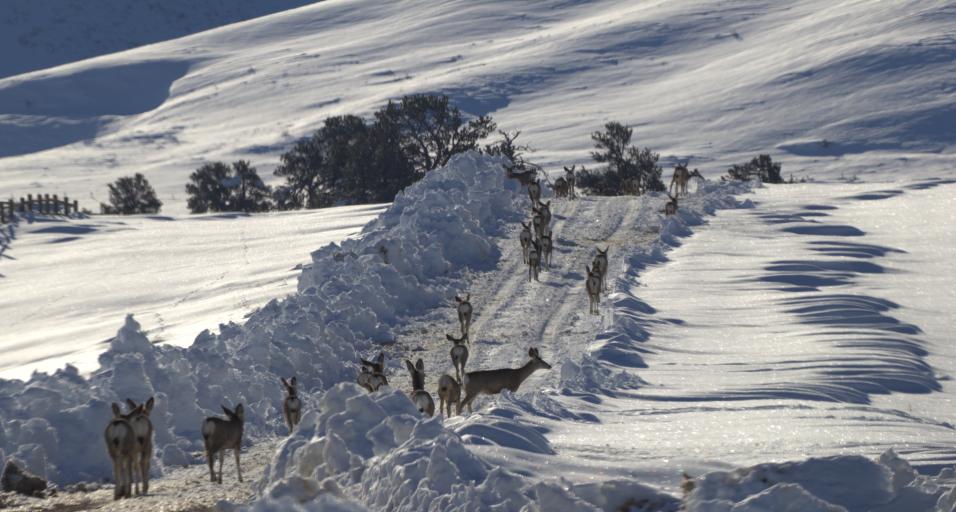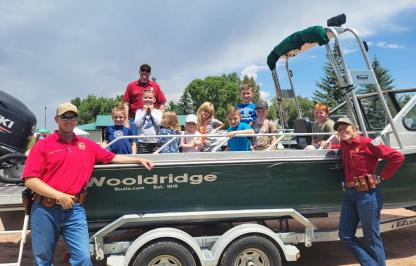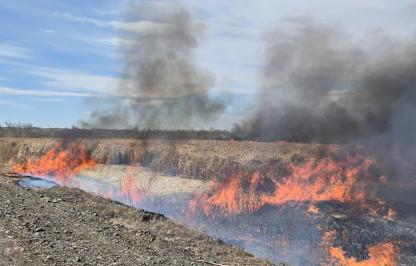The Wyoming Game and Fish Department is asking for the public’s cooperation concerning big game animals affected by the recent winter storm. In particular, areas around Casper, Glenrock, and Douglas have experienced very heavy wet snow.
Deep snow and limited access to food sources have forced pronghorn and deer to use plowed roads to move to areas with less snow. Despite warming up during the day, this moisture-laden snow is freezing solid each night, which has made it nearly impossible for many animals, especially pronghorn antelope, to access forage or just move around. Now they’re turning to our plowed roadways in order to move to areas with less snow. Unfortunately, this also means vehicles have been hitting wildlife more often, and in some cases, several big game animals have been hit at the same time. The Game and Fish is asking everyone to slow down, be extra vigilant for wildlife, and give these animals a break.
Game and Fish also reminds residents to avoid feeding these animals because it can result in serious health problems for them and conflicts with humans. Artificial feeding tends to concentrate animals together, which is a rich environment for the transmission of diseases such as chronic wasting disease. “When animals are struggling through winter on poor feed, their immune systems are weakened, allowing diseases and parasites to take hold,” said Justin Binfet, Wildlife Management Coordinator for the Game and Fish Department’s Casper Region. In addition, mule deer in particular cannot digest food sources outside their normal diet when they are suddenly fed. Feeding can also result in high concentrations of deer in localized areas resulting in damage to residential landscaping, which can cause further conflicts with neighbors.
Severe winter storms can take a toll on big game animals, and it’s not uncommon for some individuals to succumb to the conditions. “Despite having a fairly mild winter to date, we expect some mortality from late-winter storms for a couple of reasons,” Binfet said. “The snow is wet and heavy, and in this case, freezing solid at night, which makes it hard for these animals to move around. Also, by mid-March they’ve already struggled through several months of winter and have lost much of their body fat. Unfortunately, some are inevitably going to die, but feeding them is not the answer. In the end, it does more harm than good.”
The Game and Fish Department asks the public to be extra cautious on plowed roadways and report any big game animals that have been injured or appear to be sick or not acting in a normal manner by contacting the Casper office immediately (307) 473-3400.
{^youtubevideo|(width)425|(height)264|(rel)False|(autoplay)False|(fs)False|(url)https://www.youtube.com/watch?v=ATzprVkssTU^}
Watch for wildlife on roads after recent winter storms



